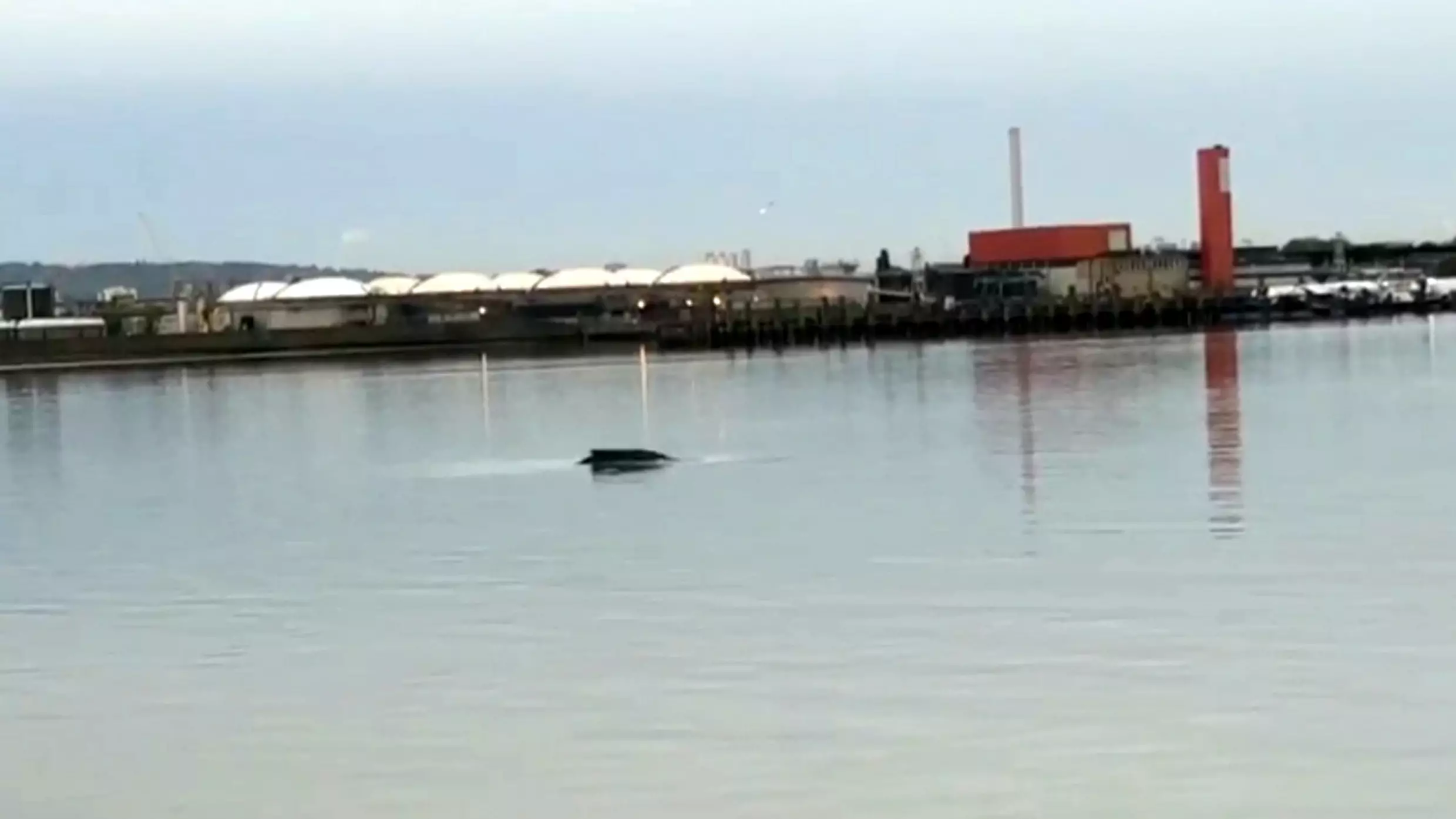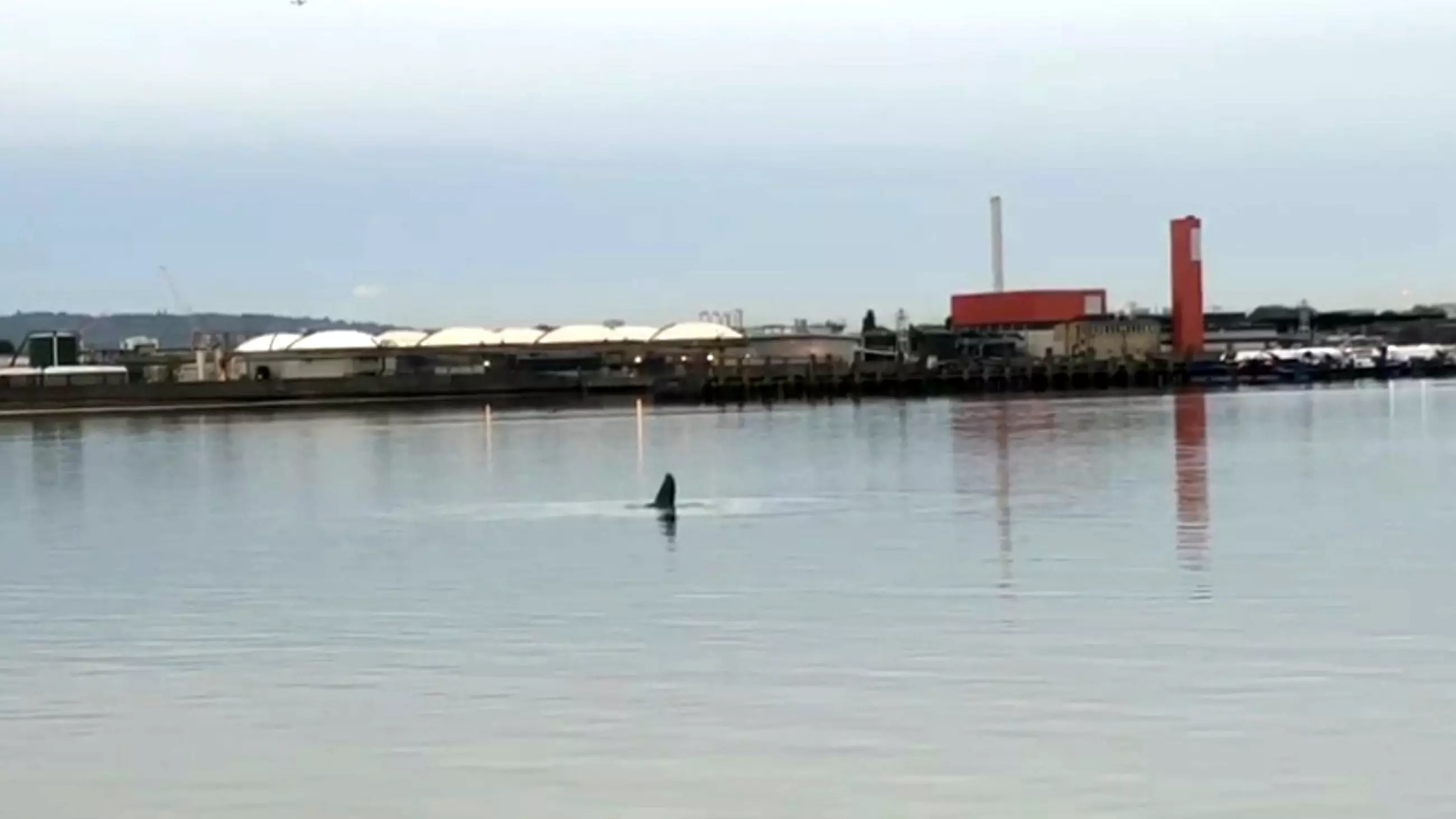
A humpback whale has been spotted swimming about in the River Thames.
Shaun O'Riordan, 52, filmed the huge whale swimming to the surface for air earlier this morning while he was at work.
Advert
The whale was first spotted yesterday [Sunday], and then seen again at around 7.30am this morning.
It headed into the capital for around 40 minutes before swimming back through Dagenham and out towards the sea.
Shaun said: "I've seen a few seals and even some dolphins, but I've never seen a whale in the Thames."
The whale was spotted by the Ford factory, with experts saying it had been hanging around since yesterday.
Advert
British Divers Marine Life Rescue said: "We observed the humpback whale in the Thames estuary for just over three hours today [Sunday].

"The whale was diving and surfacing at approximately five to six minute intervals, slowly moving down river with the outgoing tide.
"We gave it lots of names today.
Advert
"The locals will have one, the press will have another. Will this one be male or female I wonder?
"Think Hessy has already been one of the chosen ones, like Nessy but less elusive."
Adult humpback whales can measure from 39 to 52 feet and weigh in at around 30 tons - they usually feed in polar waters before migrating to tropical or subtropical waters to breed and give birth. So, it would appear that this one is pretty far from home.
Earlier this year, a hammerhead shark was spotted in British waters for the first time ever.
Advert
Scientists from the Marine Institute based in Galway, Ireland, found the shark in the Celtic Sea in August.
Dr Simon Boxall, of the Southampton Oceanography Institute, said he couldn't think of any reason why a hammerhead couldn't live in British waters.
He said: "I am not aware of them [hammerheads] being seen in our waters before, but this sighting does not surprise me.
"Temperatures in these waters have increased by 2.5°C over the last 20 years and more exotic species carried by the Gulf Stream are travelling further north for food.
Advert
"But this also means that native fish species such as cod are also being pushed further north as they lose colder waters."
Featured Image Credit: SWNS